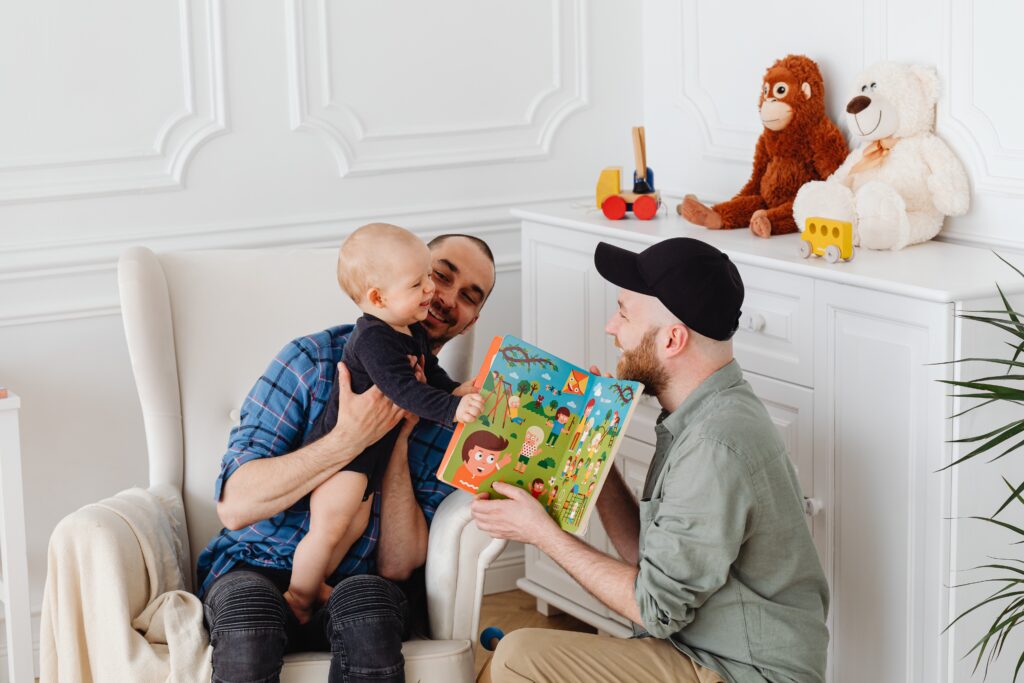The Diplomat Parent Guide – Learn more with Healthier Baby Today! As we navigate the delightful adventure of parenthood, we may occasionally find ourselves looking for unusual and creative solutions to problems that arise.
Then there is “The Diplomat Parent Guide,” a valuable collection of unique advice that dared to question accepted wisdom.
In this article, we’ll look at the ten most contentious suggestions from “The Diplomat Parent Guide,” each of which aims to give parents new insights on raising joyful, self-assured, and well-adjusted kids.
Table of Contents
1. Accept Constructive Dispute Resolution

The “The Diplomat Parent Guide” contends that achieving harmonious parenting involves embracing conflict rather than trying to avoid it.
Parents may teach their children essential life skills like communication, empathy, and compromise by modeling good dispute resolution.
Respect divergent viewpoints and use arguments as learning opportunities by creating an inclusive environment.
2. How to Use “Yes, And”
“The Diplomat Parent Guide,” which takes its cues from improv theater, encourages parents to engage their kids in conversation using the “Yes, And” technique.
Instead of dismissing ideas or proposals, build them up with encouragement and positivity.
This method fosters children’s creativity, self-expression, and confidence by letting them know their opinions are appreciated and cherished.
3. Technology and Real-Life Connection in Balance
For modern parents, the argument over screen time and technology use is a never-ending challenge.
The “The Diplomat Parent Guide” puts forth a balanced strategy emphasizing teaching kids the value of good tech habits while valuing in-person interactions.
Accentuate the importance of in-person relationships and outdoor experiences while embracing technology for learning and connection.
4. Embracing Safe Boundaries While Promoting Risk-Taking

Parents may find the idea of risk-taking disconcerting, but “The Diplomat Parent Guide” promotes encouraging measured risks within acceptable limits.
Children who are given the freedom to explore and overcome obstacles grow in their resilience, problem-solving abilities, and self-assurance.
Children can learn from achievements and failures when freedom and safety are balanced, preparing them for the variety of chances and difficulties life offers.
5. Open Discussions on Divisive Issues
Instead of avoiding contentious subjects, “The Diplomat Parent Guide” supports honest, age-appropriate dialogues.
Such discussions help kids develop their critical thinking and empathy.
The parent-child relationship is also strengthened since youngsters feel at ease asking their parents for advice and support on delicate matters.
6. Redefining Success Outside of the Classroom
“The Diplomat Parent Guide” encourages parents to redefine success by embracing a variety of talents and passions in the quest for academic brilliance.
Promoting children’s interests promotes well-rounded growth and a sense of accomplishment outside of the realm of typical academic achievements.
These interests can be in the arts, sports, or other hobbies.
7. The Influence of “I Don’t Know”
“The Diplomat Parent Guide” promotes the power of admitting “I don’t know” in a society where parents are expected to have all the answers.
Children are taught humility and understand that learning is a lifetime journey, while adults are open about not knowing all the answers.
Foster a love for inquiry and ongoing learning by cultivating curiosity and working together to find solutions.
8. The Development Of Emotional Intelligence

Beyond academic achievement, a child’s development must prioritize emotional intelligence.
“The Diplomat Parent Guide” emphasizes teaching kids how to understand and control their emotions.
Children grow in empathy, self-awareness, and the capacity for positive connections. As a result, they are laying the foundation for emotional health throughout life.
9. Improving Discipline by Embracing Individuality
Although “The Diplomat Parent Guide” advises parents to approach discipline with an emphasis on individuality, discipline is an essential component of parenting.
Recognize that each child reacts differently to different forms of discipline, and adjust your tactics accordingly.
This strategy promotes more respect and comprehension between parents and kids.
10. Acknowledging “Parents Night Out Near Me”
Parental care and personal time should be more frequently addressed.
The parenting resource “The Diplomat Parent Guide” supports the idea of “Parents Night Out Near Me,” urging parents to put their wellbeing first by scheduling time for themselves.
Accept periodic downtime for leisure, interests, or social outings to revitalize and sustain a healthy work-life balance.
The Importance of “parents night out near me.”
“Parents night out near me” is not only a luxury but crucial to upholding a positive work-life balance.
Parents can better care for their children when they take the time to recharge, decompress, and re-energize.
It offers the chance to dabble in hobbies, catch up with old acquaintances, or unwind quietly.
1. Finding Amusing Activities

The choices during “parents night out near me” are limitless. Parents might look into a variety of enjoyable and relaxing hobbies.
A night out for a romantic dinner at a favorite restaurant, a trip to the theater, a relaxing spa treatment, or even a night of dancing can all help you feel lighter and more invigorated.
2. Getting back in touch with interests and hobbies
The duties of parenthood frequently cause us to put our interests on the back burner. “Parents Night Out” offers the ideal chance to rekindle such interests.
Participating in hobbies, whether taking a painting class, practicing yoga, or joining a reading club, improves a person’s sense of fulfillment and individuality.
3. Building Relationships
Relationships become more robust when people take time for themselves. A “Parents Night Out” might help couples rekindle their romance and strengthen their relationship.
Parents teach their children the value of love, respect, and communication by caring for their relationship.
Research in Favor of “Parents’ Night Out”
Numerous studies have emphasized the beneficial effects of “Parents Night Out” on family relations and parental well being.
A Journal of Marriage and Family study found that regular date nights and leisure time significantly boost marital satisfaction and family happiness.
4. Stress Management for Parents
Stress is a constant worry for parents, and parenting may be stressful.
According to research in the Journal of Child and Family Studies, parents who regularly engage in self-care activities, including “Parents Night Out,” report reduced levels of parental stress and have improved mental wellbeing.
5. Increasing Parent-Child Communication
Parental self-care helps them be more emotionally present and sensitive to their kids’ needs.
Because parents can more patiently and empathetically respond to their children’s emotional cues, there is an improvement in parent-child relationships.
6. Promoting Constructive Role Modeling

Parents can model the value of balance, self-compassion, and personal development for their children by practicing self-care and going on “Parents Night Out.”
Children are guided toward prioritizing self-care in their own lives when they discover that it is a crucial component of overall well being.
7. Redefining Success Outside of the Classroom
“The Diplomat Parent Guide” encourages parents to redefine success by embracing a variety of talents and passions in the quest for academic brilliance.
Promoting children’s interests promotes well-rounded growth and a sense of accomplishment outside typical academic achievements.
These interests can be in the arts, sports, or other hobbies. Academic success is significant, but recognizing children’s distinctive talents and interests encourages them to discover their genuine interests and purposes.
Controversial Tips from The Diplomat Parent Guide…
The book “The Diplomat Parent Guide” questions traditional methods of raising children and encourages parents to adopt fresh viewpoints that value honest dialogue, emotional intelligence, and individuality.
These contentious suggestions can help parents foster a caring environment where their children can thrive and grow into self-assured, kind, and independent adults.


